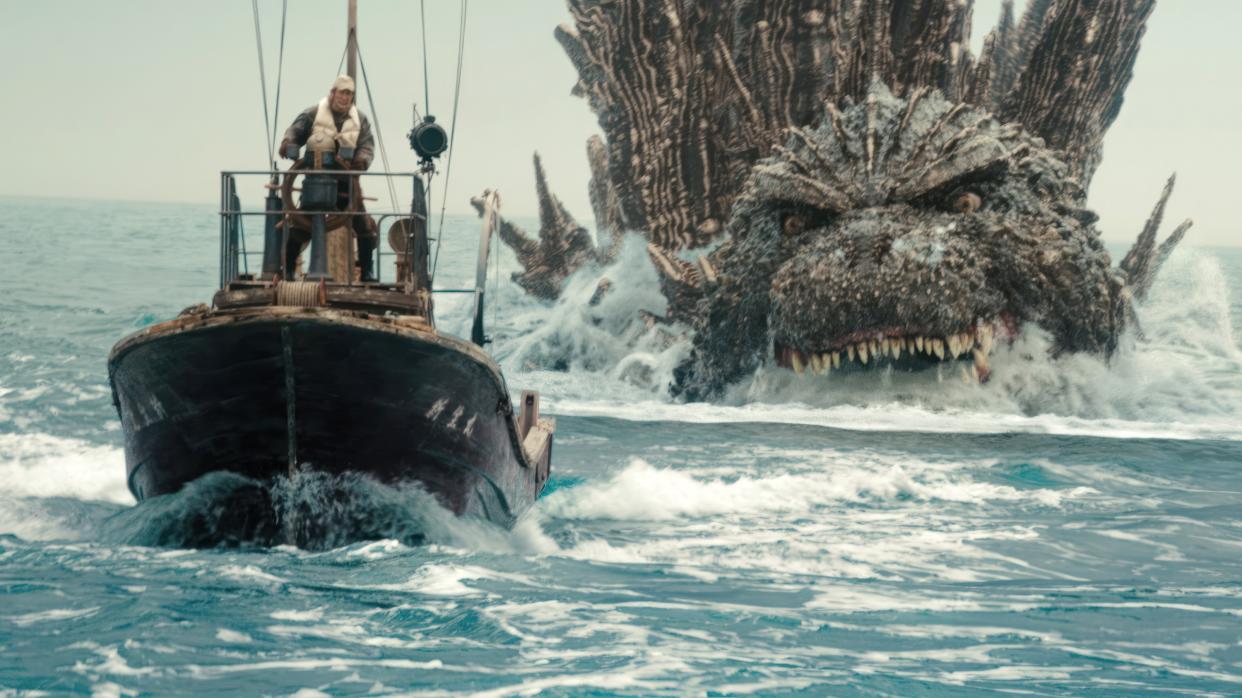With Its Oscar Nomination, ‘Godzilla Minus One’ Brings Takashi Yamazaki into an Exclusive Club

When “Godzilla Minus One” writer, director, and visual effects supervisor Takashi Yamazaki was nominated for an Academy Award for visual effects this year, he became the first director to be nominated in that category since Stanley Kubrick for his “2001: A Space Odyssey.” Kubrick won that year — the only Oscar ever awarded to the legendary director — and Yamazaki’s extraordinary work on “Godzilla Minus One” makes it seem likely that he could follow in Kubrick’s footsteps. The film is filled with awe-inspiring images, particularly when it comes to Yamazaki’s conception and execution of his famous title character; the rich texture, detail, and weight he brings to the creature make Godzilla the most convincing and terrifying monster of its type since the dinosaurs in “Jurassic Park.”
Yamazaki credits his triple role as writer, director, and visual effects supervisor with streamlining the process, even if sometimes the director cursed what the writer created. “When I’m writing a screenplay, I don’t necessarily think about the director,” Yamazaki told IndieWire. “When I’m on set I’ll think, ‘Man, why did the writer put in this scene that’s so hard to pull off?’ And the same goes for the effects — when I’m directing, I’ll say, ‘We’ll fix it in post,’ and then when it’s time to wear my visual effects supervisor hat, I’ll say, ‘What was the director thinking?’ But there are definite benefits across the disciplines as we transition through the various stages of production.”
More from IndieWire
Art Directors Guild 2024 Winners Include 'Poor Things,' 'Oppenheimer,' and 'Beef'
Christopher Nolan Wins Top Prize at DGA Awards (Complete Winners List)
One of those benefits is that there’s no dilution of Yamazaki’s point of view as the movie moves from pre-production to release. “Had there been a different writer, director, and VFX supervisor, each person would probably have a different image of what they see,” Yamazaki said. “This way there’s no friction or difference of vision. Having three people bundled into one limits what can be done, but it also eliminates inefficiencies because the vision from the onset is clear, and we can reduce the amount of trial and error that we have to go through in post-production.”

That efficiency helped Yamazaki create effects that could compete with Hollywood studio films budgeted at hundreds of millions of dollars even though he was working with a small team of 35 artists on a movie that cost a reported $15 million. Yamazaki says the simplified VFX pipeline of “Godzilla Minus One” helped maximize his limited resources. “The decision-making and approval process was very fast,” he said. “I imagine on other productions that between any individual VFX artist and the director there are many layers of approvals before it finally gets shown to the director and then gets kicked back for another retake. In our case, my workstation was on the same floor as the rest of the VFX artists, so if someone had a shot in pretty good shape they could just say, ‘Hello director/VFX supervisor, come check this out.'”

Yamazaki could not only quickly approve or reject specific shots or elements of shots, but if he wanted to he could take the shot and work on it himself. “Because I have a background as a VFX artist, I could take the file from them and create a rough version to show them what I was trying to do, and then give it back to the artist to polish,” Yamazaki said, “so my being on the same floor and being constantly available just sped up the decision-making process and eliminated a lot of downtime.”
Yamazaki was delighted and humbled to be nominated alongside other films he admires, and credits the passion of his visual effects team with making “Godzilla Minus One” the success that it has become. “The team was super into ‘Godzilla,’ so they went above and beyond the call of duty and poured their hearts and souls into this,” Yamazaki said. “They wanted to make a great kaiju film, and perhaps their emotional investment added that extra cherry on top in terms of the visual effects we see on screen. Everyone’s desire to make this monster movie amazing creates a power you can’t see, but I feel like it has an impact on the work.”
Best of IndieWire
Where to Watch This Week's New Movies, Including 'Argylle' and 'How to Have Sex'
Christopher Nolan's Favorite Movies: 40 Films the Director Wants You to See
Sign up for Indiewire's Newsletter. For the latest news, follow us on Facebook, Twitter, and Instagram.


